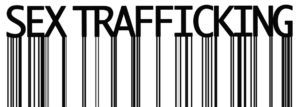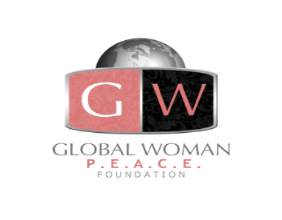For the next 3 weeks, Global Woman Newsletter will present a 3-part series, highlighting sex trafficking in Virginia, with compliments of the Blue View. It is just as serious a cause as female genital mutilation.
By Wallicia Gill and Brad Swanson
FIRST IN A 3-PART SERIES
Teen sex trafficking in northern Virginia happens every day, but most people know very little about this horrific crime, even though experts say that our region is a hotspot and the practice is growing.
Scare stories are easy to come by. But hard data is hard to find.
How many girls and young women in our region are ensnared? How many of those are identified and recovered? Who are they, and where do they come from? Who are the pimps and how organized is the trade? And what can we do about it?
Dramatic stories without real information just frighten people. Only facts lead to understanding and resolution. With this in mind, The Blue View has interviewed a number of resource providers dealing with the trafficking problem in our area in an attempt to present a real picture, without sensationalism or moralizing.
The picture is not pretty, but our hope is that by showing it clearly we will help all parts of our community deal more effectively with the issue – for only an integrated solution tying together friends, family, schools, business, law enforcement, and social services will ultimately prevail.
We are dividing our story into three parts. This first part tries to answer the basic “who, what, when” questions of any news story. The second part, to be published soon, will sharpen the focus by featuring the personal narrative of the mother of a trafficking victim from our area. The final part will describe the array of resources to deter and deal with trafficking and show that everyone has a role to play.
More than 100 Victims Identified Annually
Let’s start with trying to size the problem. According to law enforcement records compiled by the Northern Virginia Human Trafficking Task Force, approximately 500 sex trafficking victims were “identified” – brought to the attention of law enforcement – in northern Virginia in the 4-year period from Jan 2013 to Feb 2017.
That averages to about 125 sex trafficking victims identified in our area per year. Experts believe that only a small minority of trafficking victims is brought to light, but they don’t have good insight into what the fraction really is. The trend in identifying victims in our region is upward, and experts believe the practice is growing, but some part of the increase may also come from more awareness and better discovery.
Of the approximately 140 sex trafficking victims identified in the year from Jan 2016 to Feb 2017, the latest data available most were female, but a significant minority was not. Experts say boys and young men, especially from the LGBTQ community, are as vulnerable to trafficker recruiting as girls and young women – and even less likely to come forward.
The average age of sex trafficking victims in the USA is 12- 15 years, but in our area the average appears to be somewhat higher, 15-18. Consequently, only about a third of the total-identified last year were technically juveniles, but the average age of the “adult” victims is not available.
The ethnic backgrounds of sex trafficked women typically mirror that of the region, and this appears to be the case for our area as well. In socioeconomic terms, girls in poverty, broken homes and violent neighborhoods – unsurprisingly — appear more susceptible to becoming trafficking victims, although high income and stable family life are no barrier. Indeed, “any victim I have personally met from Northern Virginia is upper income demographic,” says Teresa Hartnett, coordinator of the Trafficking Task Force, which brings together law enforcement agencies, government agencies and nongovernmental organizations in the fight against trafficking.
Vulnerability is the key to understanding why girls and young women get trapped into sex trafficking. Girls are not kidnapped off the street and bound in chains. The typical pattern is for a girl who is lonely, unhappy, rebellious, adventurous, or some combination, to meet a trafficker, who poses as a friend and over time gains influence through empathy, attention and acceptance. The initial meetings typically happen on-line or in shopping malls or other public places. The trafficker is patient, because the payoff for a successful recruitment is unlimited.
After winning a girl’s trust, a typical tactic is for the trafficker to break her will by raping her, or staging a gang rape, sometimes filming the episode for blackmail. Drugs are another method of control. Also common is threatening harm to family members if the victim comes forward. But some victims are ensnared by emotional dependence, or fear, without strong-arm tactics being necessary. Often the victim keeps up a show of normality – going to school, spending time with her family – while she is being subjected in her unsupervised time to involuntary sex.
The average period of being trafficked, is difficult to determine. In some cases, after a few instances the victim is deemed unsuitable, or the trafficker is caught, or moves on. But in other cases trafficking is a one-way journey and its victims are unable to return.
Forty Percent of Victims Returned to Trafficking
In fact, of the approximately 500 victims identified by police in 2013-17, only about 300 were “recovered” – removed from the trade, reunited with families, or sent to live elsewhere. Tragically, 40% of those identified slipped back into sex trafficking.
The reasons are unique in each case, but are often tied to the same factors that led to vulnerability in the first place. Being returned to live in a dysfunctional family and neighborhood doesn’t strengthen a girl’s will to resist the false affection and security of an experienced trafficker.
Moreover, the horrific experience of being trafficked can destroy a young woman’s self-esteem and dignity and skew her ability to function. “Starting over is very hard, “ says Hartnett. “It can get overwhelming, and some survivors lose hope. If they lose momentum going forward, they slip backwards into what’s familiar – and what they have come to think they deserve.”
Trafficking victims who are able to recover often take many months or years of counseling and emotional support to regain their autonomy and self-confidence. (We will look at some of the resource available to victims in Part III of this series).
Traffickers typically are not solo operators but rather are linked and have specialized functions, similar to street level drug distribution. Some are adept at recruiting, and then passing the victims to pimps who control one or two victims at a time. But not all trafficking is low-level. Networks operate across state lines moving victims both to take advantage of high demand in a different area and to isolate the victims from potential sources of help.
Gang-led trafficking varies in intensity across the country. In northern Virginia, gangs typically do not practice trafficking as an organized activity although some gang members traffick as individuals, notes Kay Duffield, who serves both as co-chair of the Victims’ Services Committee of the Trafficking Task Force and executive director of the non-profit Northern Virginia Human Trafficking Initiative.
Not all trafficking is done by third parties. Family members, including drug-addicted parents, sometimes sell their own children to traffickers. That may help to explain that out of 28 defendants in northern Virginia trafficking cases last year, eight – almost a quarter — were women, according to Trafficking Task Force data.
A Growing Problem in Affluent Northern Virginia
From anecdotal evidence, sex trafficking appears to be growing in our region, say experts. They point to two factors. First, the typical buyer of teenaged sex is married, male, with children, and money to spend. That’s a common profile in affluent northern Virginia.
Forced sex is sold in a market, and responds to buying pressure like any other. “We need to do something on the demand side,” says Duffield. “Traffickers are going to create that product until demand is gone.”
The second factor explains why areas like Springfield, Dumfries and Tysons are trafficking hotspots –trafficking follows the highways. Traffickers, whether local or interstate, like mobility and the anonymity of travel nodes – as do buyers. Converging highways make for easy contact, fast access to motels, and quick exits. The tangle of major roads in northern Virginia draws in sex trafficking like a neon sign.

NEXT IN SERIES: A Mother’s Tale
If you or someone you know is a victim of trafficking, call the National Human Trafficking Hotline at 1-888-373 7888. If danger is imminent, call 911.
Dr. Wallicia Gill is a retired middle school principal, and adjunct professor at Shenandoah University.
Brad Swanson is the editor of The Blue View. He is an international investment manager and previously worked as a diplomat and journalist.
Comments and questions to info@globalwomanpeacefoundation.org or call (703) 818-3787







